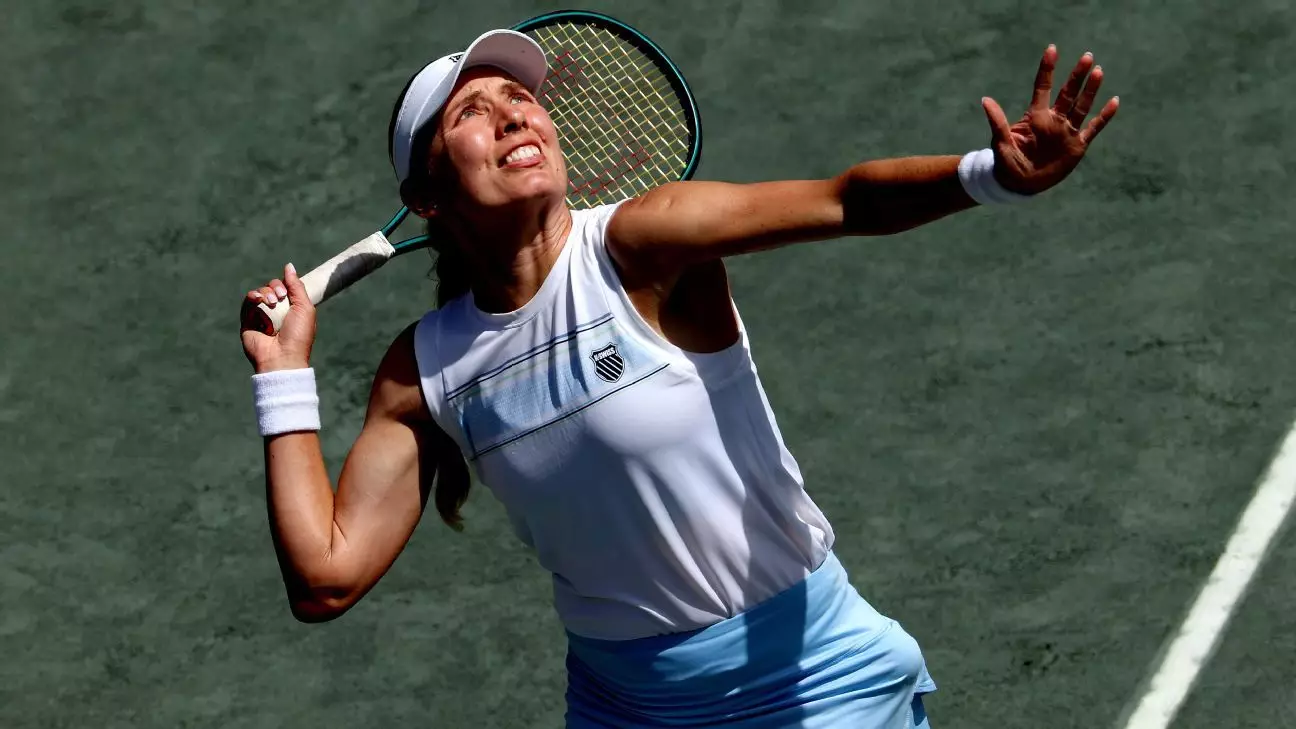In a gripping Charleston Open semifinal that showcased grit and determination, top seed Jessica Pegula faced off against Ekaterina Alexandrova, emerging victorious with a final score of 6-2, 2-6, 7-5. Initially, Pegula looked set to dominate as she sprinted to a 5-0 lead, displaying remarkable skill and confidence. However, Alexandrova’s resilience transformed the match into a nail-biting affair. This dramatic shift emphasizes the unpredictable nature of tennis, where momentum can sway like a pendulum, reflecting the mental fortitude athletes must possess.
Pegula’s early momentum highlighted her power and precision, particularly with her backhand winner that initiated the first break of the match. Conversely, Alexandrova’s subsequent recovery showcased her ability to adapt under pressure. It was a clash of two contrasting styles; Pegula’s aggressive approach was met with Alexandrova’s strategic counterpunching. The tense exchanges culminated in a riveting final set, where Pegula’s experience and tactical acumen ultimately proved decisive.
Weathering the Storm: The Influence of Conditions
One cannot overlook the pivotal role that environmental factors played during the match. The players grappled with swirling winds that rendered many exchanges awkward. Pegula herself acknowledged the challenges posed by the weather, stating, “It wasn’t the prettiest at times… it was just trying not to get frustrated.” Such candid recognition of external influences speaks volumes about the mental landscape in which elite athletes operate.
Athletes at this level must cultivate not only physical prowess but also psychological resilience. For Pegula, navigating the windy conditions required an acute awareness of shot selection and timing. Tennis is often as much about mental agility as it is about athleticism, and Pegula’s ability to maintain focus amid chaos ultimately contributed to her hard-fought victory.
The Unexpected Turn: Kenin Advances Amidst Injury
In a striking contrast to Pegula’s battle, Sofia Kenin advanced to the finals largely due to Amanda Anisimova’s unfortunate injury. This moment underscored the cruel reality of competitive sports: injuries can derail the most promising of campaigns. Anisimova, the eighth seed, was brimming with potential as she aimed to build on her earlier triumph in Doha. However, as she slowed her movement, it became painfully clear that the match had spiraled out of her control.
Kenin’s advancement this way raises questions about the unpredictability of sport and the thin line between success and failure. Not only did Anisimova retreat from the match but Kenin also found herself in a position facilitated by another’s misfortune. This is a stark reminder that in sports, moments of brilliance often coincide with unfortunate turns of fate.
A Historic Finale: All-American Showdown on the Horizon
The upcoming Charleston Open final marks a significant milestone in the tournament’s history. For the first time since 1990, tennis fans will witness an all-American final, with Pegula and Kenin set to clash for the title. This surge of talented athletes signifies a promising era for American women’s tennis, as they challenge themselves and each other at the highest levels of competition.
In a sport where international competition is fierce, the prominence of American players in this event sparks excitement and speculation about future opportunities and rivalries. The contrast in styles between Pegula’s assertive play and Kenin’s strategic approach sets the stage for an intriguing championship match. Both athletes have demonstrated their capabilities throughout the tournament, and their final encounter is poised to be a captivating spectacle that champions the spirit of competition.
As the Charleston Open approaches its conclusion, the narrative woven through the matches reflects not only individual tenacity but also the broader story of resilience, rivalry, and the unexpected turns that define this sport.

